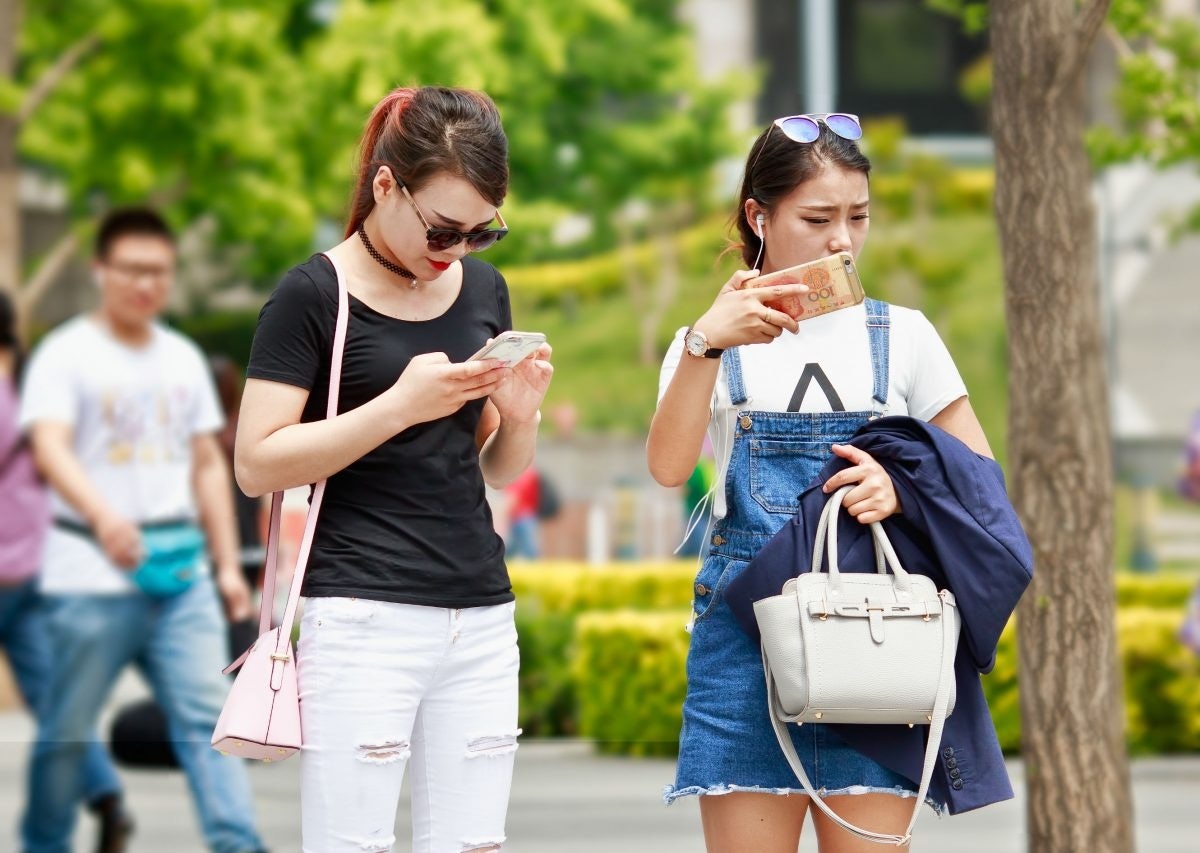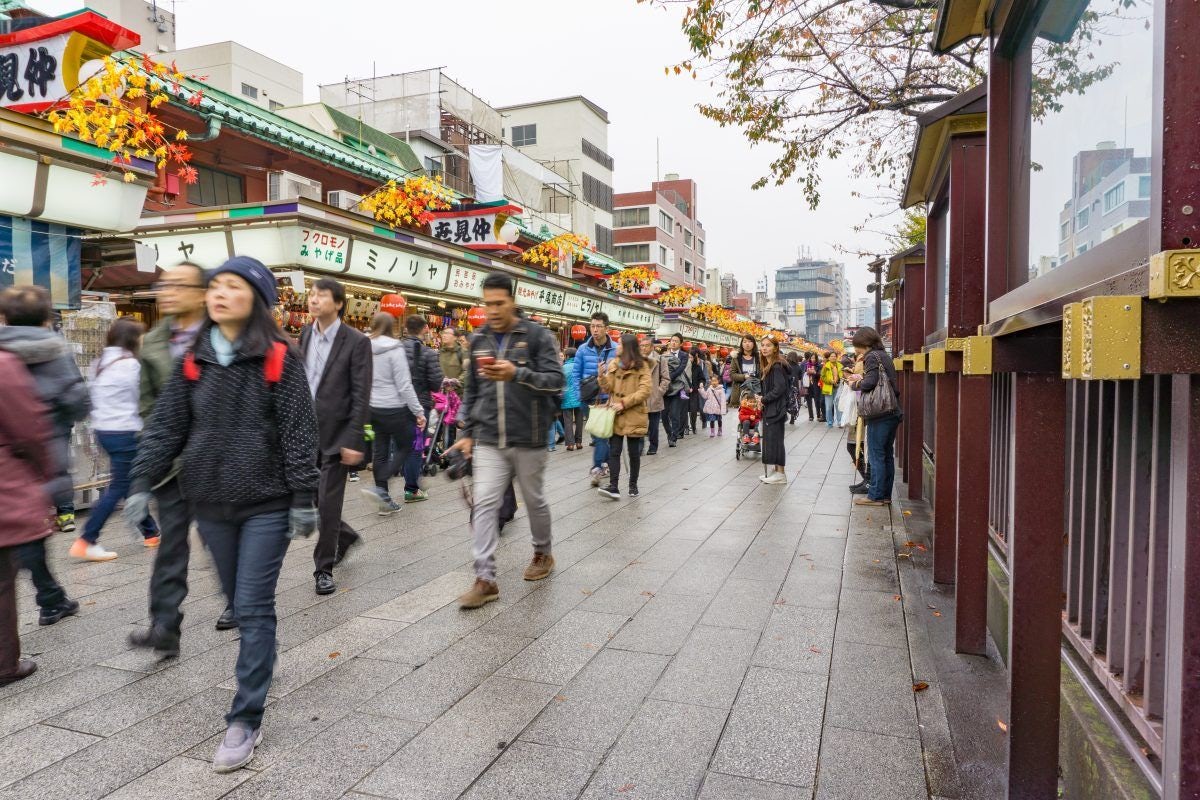With 78 percent of affluent Chinese consumers purchasing high-end goods on mobile devices, luxury marketers must amplify their online efforts to further facilitate mobile conversions, according to a new report from Emerging Insider.
Emerging Insider’s “The Purchasing Habits of China’s Affluent Population” report found that as consumers’ comfort with mobile commerce has grown, digital marketing has become influential in the path to purchase and is likely to gain momentum. Of the affluent Chinese surveyed, Emerging Insider found that 22 percent said seeing an advertisement led to making a purchase, while 36 percent saw an item of interest via a social media influencer.
“Marketers have always had a set of challenges when targeting China that may include anything from the firewall to language barriers, and this is especially pronounced in the luxury industry,” said Zachary Weiner, CEO of Emerging Insider, Chicago.
“What is often disregarded, however, are very differing behaviors on the cultural front that play an incredibly large role in buying habits there,” he said. “China’s rise in mobile has been more pronounced than elsewhere in the world, which is important.
“But so is understanding the Chinese drive to shop globally in a locale-specific manner, their tendency to embrace highly individualistic tastes rather than following group trends and how strongly shopping is tied into other lifestyle activities such as travel.”
Emerging Insider surveyed 700 affluent Chinese consumers with a household income greater than 600,000 RMB, or about US87,000 at current exchange, for its report.
A matter of status#
Per the report, 65 percent of affluent consumers in China rarely make a purchase in-store without reviewing a product online before a physical visit. Mobile use in China has enabled this behavior.
“A massive population with a high proportion of millennial and Gen Z inhabitants, coupled with a rise in the number of middle class households, drove the market to embrace mobile rapidly,” Weiner said. “As this was developing, the retail sector in China was at a weak point, which meant that mobile commerce opened doors to goods that could not be found in brick and mortar stores.
“Rampant social media usage and early adoption of e-commerce/social platforms such as Baidu, Alibaba, and Tencent also played a role in shifting behaviors toward a mobile-first ecosystem.”
The practice of conducting online research prior to visiting a retail location has been steadily growing for a number of years and has redefined the role of storefronts. This online research behavior has also lent itself to the Chinese consumers' preference of traveling abroad to make high-end purchases.
Though pricing and duty tax is a consideration, making a purchase abroad elevates personal status and many Chinese consumers feel that outward appearance and individual sense of style is a reflection of one’s station in life.
Also, Emerging Insider’s survey found that although Chinese consumers feel “Made in China” clothing may fit better, those produced in France, Italy, or the United States look better. Seventy-six percent of respondents prefer foreign brands to those with a Made in China label and 36 percent felt that goods made elsewhere are a “matter of status” not applicable to local items.
Choice is also a driver of affluent Chinese buying abroad, a quarter of respondents feel that there is a greater selection outside of China, and 20 percent believe those goods are of better quality.
Advertising also comes into play in terms of Chinese consumers’ sense of style. Twenty percent of respondents have become privy to new trends via advertisements, but 24 percent and 26 percent were inspired by social media or peers, respectively.
Increasingly, China has seen a rise of individualism with 61 percent of respondents preferring distinct goods from boutique labels instead of the wares of well-known brands. Making limited-edition products available in select markets is one tactic luxury brands can leverage to speak to Chinese consumers’ interest in buying high-end goods abroad and their growing preference of unique personal items.
Stories and shopping#
Travel preferences are intertwined with the purchasing behavior of Chinese affluents.
As individualism has surged in terms of what Chinese consumers are interested in buying, a penchant for boutique hotel properties has also increased. Of those surveyed by Emerging Insider, 57 percent would rather stay at a boutique hotel than a large hospitality chain. The novelty of an accommodation is also outpacing comfort or location in a foreign destination with 57 percent agreeing with the statement.
While sightseeing is appealing to the Chinese consumer, many expressed an interest in entertainment with concerts, festivals and theater being attractive options during a trip. Overall, Chinese consumers seek out destinations that offer a compelling personality and captivating story to tell friends at home.
Even though shopping is a main draw to foreign markets, affluent Chinese respondents ranked culture and history as the primary travel driver with 46 percent agreeing. Culture and history is followed by shopping, nature and climate.
To capture the market share of affluent Chinese tourists, brands have launched efforts that further luxury brand marketing. For example, luxury lifestyle magazine China Galerié brought its content to European and North American audiences with newly launched WeChat accounts. Through its WeChat accounts China Galerié speaks to more than 150,000 registered fans and more than 20,000 weekly readers, demonstrating the breadth of China’s most popular social media channel.
Using WeChat, China Galerié pushes shopping experiences and branded content, unique to the three regional markets.
“[Emerging Insider’s report data] shows that luxury buying behavior are being driven by a preference toward items that are made outside of China,” Weiner said.
“Chinese luxury buyers not only want to show off finds that may be exclusive and difficult to acquire, but the point of origin itself is considered as valuable if not more important than the brand name behind the product,” he said. “A general desire to travel or send personal shoppers to other countries to acquire these goods will directly impact where China’s luxury buyers wish to spend their money and how they choose to shop.
“By understanding their preferences while traveling, we garner key insights as to where and why they will pursue certain retail purchases.”
A version of this post first appeared on Luxury Daily.



